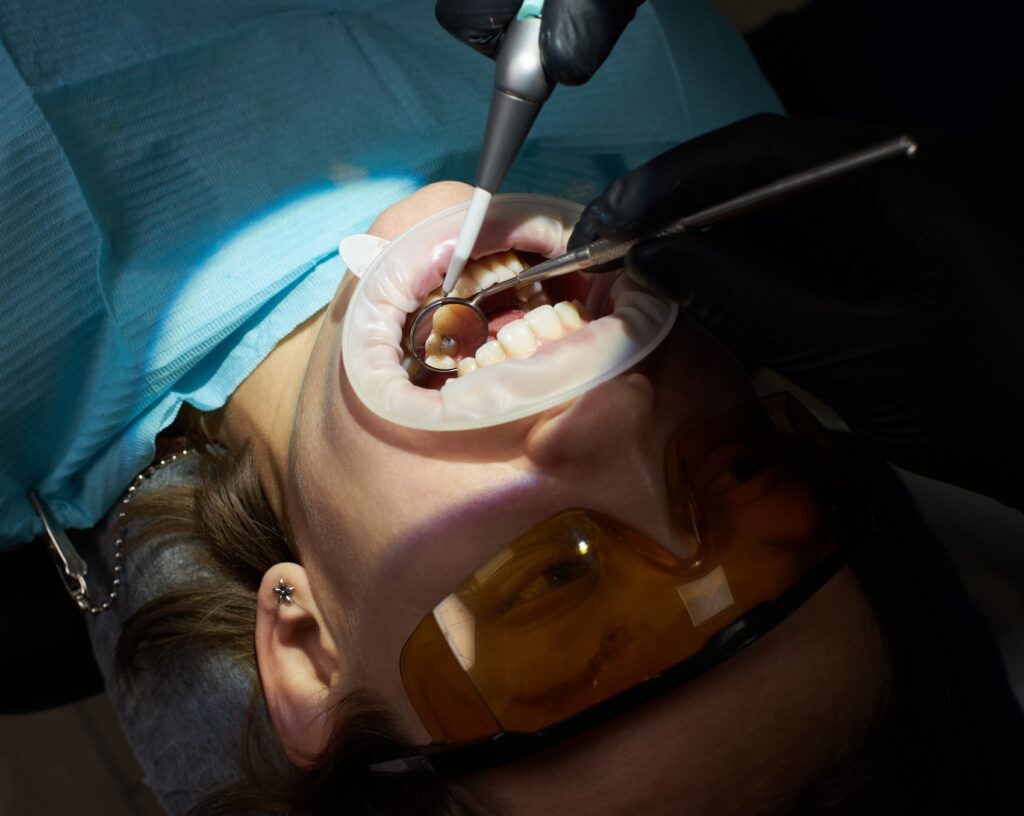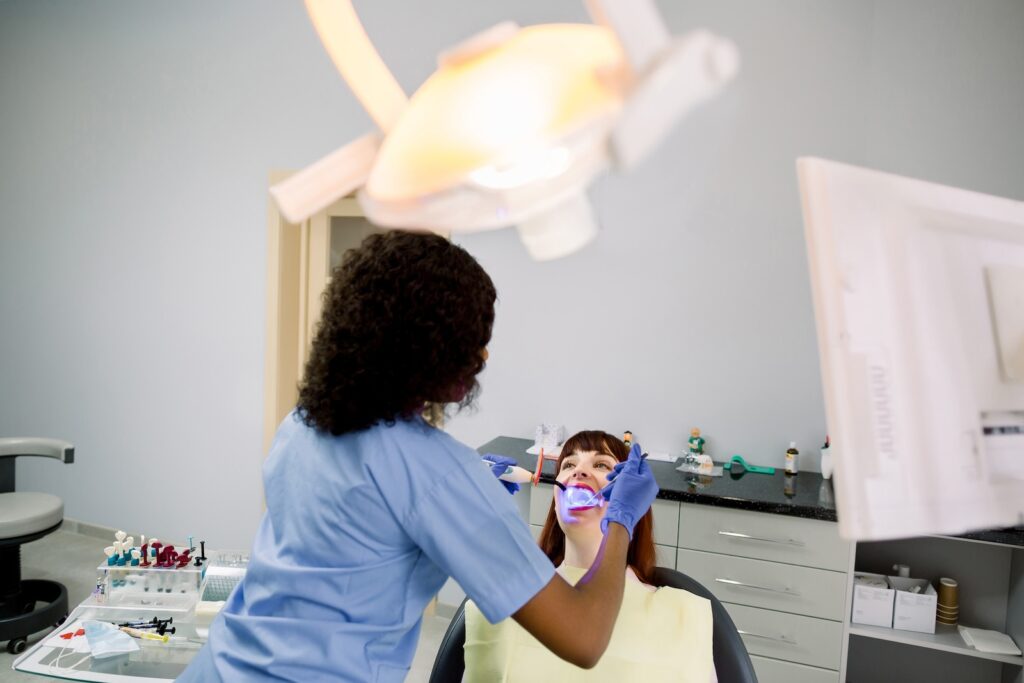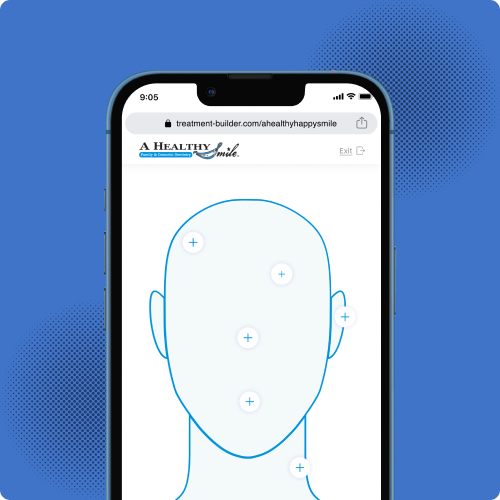
You wouldn’t ignore a scrape or bruise on their knee and you’re always there to comfort them when they feel sad or scared.
But are you taking the same care to promote your child’s oral hygiene?
We know that most kids are not thrilled about brushing and flossing their teeth. But children’s dental health is essential to good lifelong oral health. And establishing proper dental care routines early on can encourage healthy habits as they grow to teens and young adults.
Read below for 5 tips you can use to help your little one take care of there teeth.
1. Start Brushing Early
Did you know that good oral hygiene starts just a few days after birth? Yep! You can start cleaning a baby’s gums and mouth with a clean washcloth in their first week of life.
After about 6 months, you may start to see your baby’s first teeth. You can start brushing your child’s teeth with a child-size toothbrush and a small amount of toothpaste with fluoride. The amount of toothpaste should be no larger than a grain of rice.
As the child gets older the amount of toothpaste increases to about the size of a pea. For children 3 to 4 years old you may still need to assist with brushing to make sure they are using the right amount of toothpaste and not swallowing it.
Children should be brushing twice a day to prevent cavities and keep their teeth and gums clean. Starting a dental hygiene routine early normalized dental care for your child which is why it’s so important.
Try making the brushing experience more fun by singing a song or brushing your teeth together. If you can prevent brushing from seeming like a chore, your child is more likely to be compliant.
2. Schedule Regular Dental Visits
Along with what you do at home to promote good oral health, it’s important for your child to regularly visit a dentist.
You can schedule a visit with a family dentist as soon as your child has their first baby teeth. Every child should visit a dentist before their first birthday.
During your child’s first few visits, the dentist will do an examination and cleaning. They will give you tips on cleaning your kid’s teeth as well as advice on teething, pacifier use, and thumbsucking.
Then, you will schedule the next appointment. It is recommended that children visit the dentist twice a year.
Maintaining a regular schedule for dental visits will also normalize the process. It’s important that your child become comfortable with visiting the dentist instead of afraid or anxious.
You can also prepare your child for what to expect when they go to the dentist. Be honest with them and try to explain the process as best as you can.
3. Monitor Sugar and Sweet Treats
You probably already know that too much sugar is bad for your child’s health. But it can be especially bad for teeth.
Sugar will stick to your child’s teeth and cause tooth decay. Tooth decay causes small holes in the teeth which most of us know as cavities.
When teeth break down sugar the bacteria releases acids which dissolve enamel. The enamel serves as a protective coat to the teeth.
Without enamel, the teeth are more likely to decay and your child could be at risk for gum disease.
Obviously, you can’t prevent your child from ever having sugary treats, but try to keep them to a minimum.
Be aware that certain foods you may not consider “junk foods” still have a lot of sugar. Fruit juices, ketchup, and some yogurts have a surprising amount of sugar.
If your child is going to enjoy a sweet snack or dessert, try to have them brush soon after eating if possible. Removing leftover remnants of food can help prevent cavities and gum disease.
4. Change the Conversation About Oral Health
Unfortunately, dentists get a bad reputation. But if you want your child to have a good relationship with the dentist, it’s important to take a positive spin on the conversation.
Talk to your child about why keeping their teeth clean is important. Discuss how dentists are there to help and are not the enemy.
You can help your child feel comfortable at the dentist rather than afraid. You may even want to bring them to the dentist before their appointment so that they can see the waiting room and know what it will be like.
You can also provide incentives for cavity-free visits or plan a special activity for dentist day. Get creative with it and help your child develop good oral hygiene habits that will continue throughout the rest of their life.
5. Set a Good Example
Children learn from what they observe. So one of the best things you can do for your child’s dental health is having good dental health yourself.
Let them see you brushing and flossing your teeth on a regular basis. Tell them about your own dental visits, or schedule your appointment with the same family dental practice.
Many adults struggle with dental health and visits to the dentist. If you are one of those people, that’s okay!
But when talking to your child try to take a positive outlook on dentistry. This will make it easier when it comes to getting them to brush their teeth and visit the dentist.
Make Children’s Dental Health a Priority
Hopefully, these dental tips for kids have been helpful to you. Remember that children’s dental health is just as important as their mental and physical health.
Starting good habits early will increase the likelihood those habits continue as your child grows. Set a good example and talk to them about why brushing is so important.
And don’t forget that regular dentist appointments start as soon as a baby gets their first tooth!
Ready to schedule an appointment for your child? Book online today and call us with any questions you may have.



